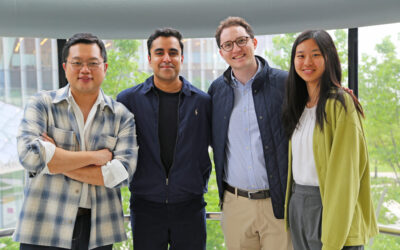The new cohort will investigate the use of AI to advance exploration in science, technology and engineering.
Cornell AI News
News Category
Filter by Topic
Who should get paid when AI learns from creative work?
A new paper co-authored by Cornell law professor Frank Pasquale argues that the current copyright system is ill-equipped to handle a world in which machines learn from, and compete with, human creativity at unprecedented scale.
Academic integrity and generative AI focus of PWGIA event
A keynote and faculty panel on Nov. 12 will focus on how faculty can communicate their generative AI-related expectations to students, how students can take accountability for their work, and what this looks like in practice.
AI-generated content a triple threat for Reddit moderators
Researchers at Cornell Tech and Cornell Bowers engaged directly with 15 content moderators on Reddit to see exactly how they try to preserve the news sharing site’s humanity in an increasingly AI-infused world.
Two grants to study AI and worker voice awarded to ILR
Two new grants from the Washington Center for Equitable Growth will fund ILR research aimed at providing insights to policymakers, union leaders, managers and others who are shaping the future of AI in the workplace.
AI models often fail to identify ableism across cultures
The artificial intelligence models underlying popular chatbots and content moderation systems struggle to identify offensive, ableist social media posts in English – and perform even worse in Hindi, new Cornell research finds.
Empire AI: Cornell call for compute resource proposals
Empire AI is now soliciting proposals from Cornell faculty and researchers to use the extended “Alpha” machine with 144 H100 GPUs, as well as the new “Beta” machine that is expected to come online in December.
SAIL Sets a Course for Smarter Trade Compliance With AI
As tariffs shift and trade regulations grow more complex, a team of Cornell Tech students is developing a smarter solution to address modern trade compliance challenges. Their company, SAIL, is steering into uncharted waters with purpose — and a deep belief that solving the right problem can unlock a new wave of innovation.








